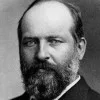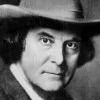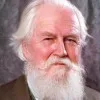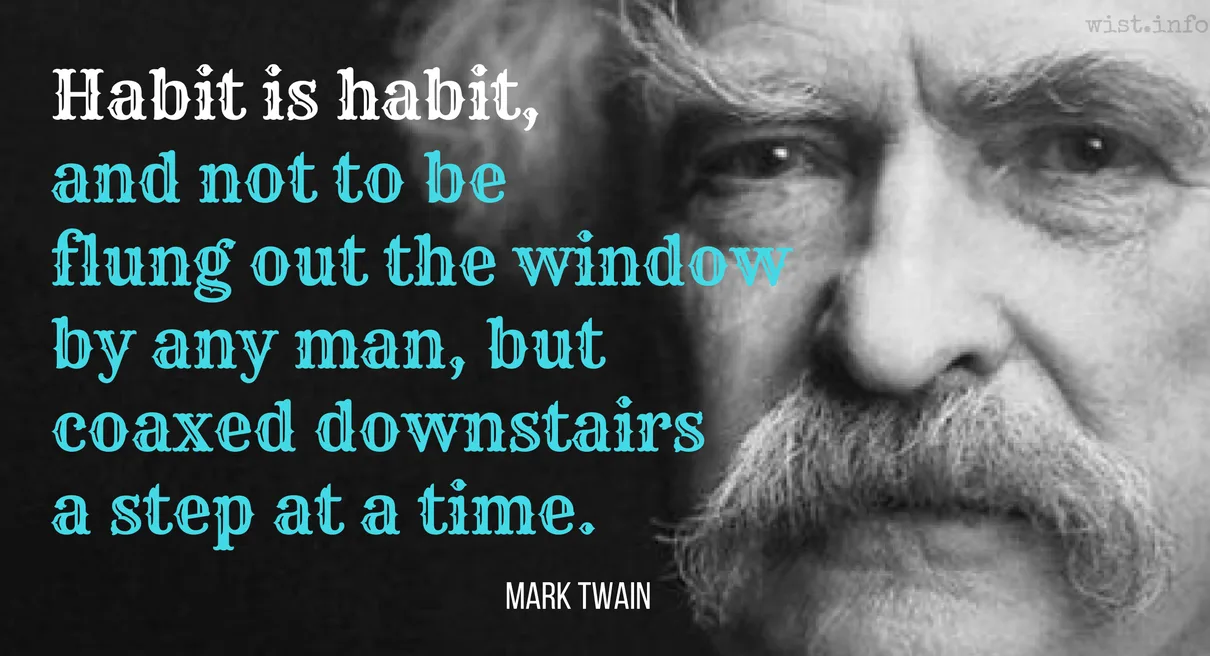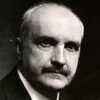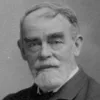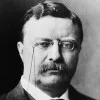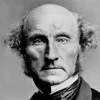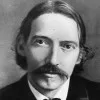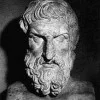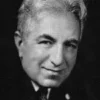Men generally, under such a government as this, think that they ought to wait until they have persuaded the majority to alter [unjust laws]. They think that, if they should resist, the remedy would be worse than the evil. But it is the fault of the government itself that the remedy is worse than the evil. It makes it worse. Why is it not more apt to anticipate and provide for reform? Why does it not cherish its wise minority? Why does it cry and resist before it is hurt? Why does it not encourage its citizens to be on the alert to point out its faults, and do better than it would have them? Why does it always crucify Christ, and excommunicate Copernicus and Luther, and pronounce Washington and Franklin rebels?
Henry David Thoreau (1817-1862) American philosopher and writer
Essay (1849-05), “Resistance to Civil Government [On the Duty of Civil Disobedience],” Æsthetic Papers, No. 1, Article 10
(Source)
Based on an 1848 lecture at the Concord Lyceum.
Quotations about:
reform
Note not all quotations have been tagged, so Search may find additional quotes on this topic.
A feeling very generally exists that the condition and disposition of the Working Classes is a rather ominous matter at present; that something ought to be said, something ought to be done, in regard to it. […] To us individually this matter appears, and has for many years appeared, to be the most ominous of all practical matters whatever; a matter in regard to which if something be not done, something will do itself one day, and in a fashion that will please nobody.
Thomas Carlyle (1795-1881) Scottish essayist and historian
Chartism, ch. 1 “Condition-of-England Question” (1840)
(Source)
When he left the bishop’s dwelling Jean Valjean, as we know, had been in a state of mind unlike anything he had ever experienced before and was quite unable to account for what was taking place within him. He had sought to harden his heart against the old man’s saintly act and moving words. “You have promised me to become an honest man. I am buying your soul. I am rescuing it from the spirit of perversity and giving it to God.” The words constantly returned to him and he sought to suppress them with arrogance, which in all of us is the stronghold of evil. Obscurely he perceived that the priest’s forgiveness was the most formidable assault he had ever sustained; that if he resisted it his heart would be hardened once and for all, and that if he yielded he must renounce the hatred which the acts of men had implanted in him during so many years, and to which he clung. He saw dimly that this time he must either conquer or be conquered, and that the battle was now joined, a momentous and decisive battle between the evil in himself and the goodness in that other man.
[Quand Jean Valjean était sorti de chez l’évêque, on l’a vu, il était hors de tout ce qui avait été sa pensée jusque-là. Il ne pouvait se rendre compte de ce qui se passait en lui. Il se roidissait contre l’action angélique et contre les douces paroles du vieillard. « Vous m’avez promis de devenir honnête homme. Je vous achète votre âme. Je la retire à l’esprit de perversité et je la donne au bon Dieu. » Cela lui revenait sans cesse. Il opposait à cette indulgence céleste l’orgueil, qui est en nous comme la forteresse du mal. Il sentait indistinctement que le pardon de ce prêtre était le plus grand assaut et la plus formidable attaque dont il eût encore été ébranlé ; que son endurcissement serait définitif s’il résistait à cette clémence ; que, s’il cédait, il faudrait renoncer à cette haine dont les actions des autres hommes avaient rempli son âme pendant tant d’années, et qui lui plaisait ; que cette fois il fallait vaincre ou être vaincu, et que la lutte, une lutte colossale et définitive, était engagée entre sa méchanceté à lui et la bonté de cet homme.]
Victor Hugo (1802-1885) French writer
Les Misérables, Part 1 “Fantine,” Book 2 “The Fall,” ch. 13 (1.2.13) (1862) [tr. Denny (1976)]
(Source)
(Source (French)). Alternate translations:When Jean Valjean left the bishop's house, as we have seen, his mood was one that he had never known before. He could understand nothing of what was passing within him. He set himself stubbornly in opposition to the angelic deeds and the gentle words of the old man, “you have promised me to become an honest man. I am purchasing your soul, I withdraw it from the spirit of perversity, and I give it to God Almighty." This came back to him incessantly. To this celestial tenderness, he opposed pride, which is the fortress of evil in man. He felt dimly that the pardon of this priest was the hardest assault, and the most formidable attack which he had yet sustained ; that his hardness of heart would be complete, if it resisted this kindness; that if he yielded, be must renounce that hatred with which the acts of other men had for so many years filled his soul, and in which he found satisfaction; that, this time, he must conquer or be conquered, and that the struggle, a gigantic and decisive struggle, had begun between his own wickedness, and the goodness of this man.
[tr. Wilbour (1862)]When Jean Valjean quitted the bishop’s house, he was lifted out of his former thoughts, and could not account for what was going on within him. He stiffened himself against the angelic deeds and gentle words of the old man: “You have promised me to become an honest man. I purchase your soul; I withdraw it from the spirit of perverseness, and give it to God.” This incessantly recurred to him, and he opposed to this celestial indulgence that pride which is within us as the fortress of evil. He felt instinctively that this priest’s forgiveness was the greatest and most formidable assault by which he had yet been shaken; that his hardening would be permanent if he resisted this clemency; that if he yielded he must renounce that hatred with which the actions of other men had filled his soul during so many years, and which pleased him; that this time he must either conquer or be vanquished, and that the struggle, a colossal and final struggle, had begun between his wickedness and that man’s goodness.
[tr. Wraxall (1862)]When Jean Valjean left the Bishop's house, he was, as we have seen, quite thrown out of everything that had been his thought hitherto. He could not yield to the evidence of what was going on within him. He hardened himself against the angelic action and the gentle words of the old man. "You have promised me to become an honest man. I buy your soul. I take it away from the spirit of perversity; I give it to the good God."
This recurred to his mind unceasingly. To this celestial kindness he opposed pride, which is the fortress of evil within us. He was indistinctly conscious that the pardon of this priest was the greatest assault and the most formidable attack which had moved him yet; that his obduracy was finally settled if he resisted this clemency; that if he yielded, he should be obliged to renounce that hatred with which the actions of other men had filled his soul through so many years, and which pleased him; that this time it was necessary to conquer or to be conquered; and that a struggle, a colossal and final struggle, had been begun between his viciousness and the goodness of that man.
[tr. Hapgood (1887)]When Jean Valjean left the bishop's house, as we saw, his thoughts were unlike any he had ever known before. He could understand nothing of what was going on inside him. He stubbornly resisted the angelic deeds and the gentle words of the old man, "You have promised me to become an honest man. I am purchasing your soul. I withdraw it from the spirit of perdition, and I give it to God!" This kept coming back to him. In opposition to this celestial tenderness, he summoned up pride, the fortress of evil in man. He dimly felt that this priest's pardon was the hardest assault, the most formidable attack he had ever sustained; that his hardness of heart would be complete, if it resisted this kindness; that if he yielded, he would have to renounce the hatred with which the acts of other men had for so many years filled his soul, and in which he found satisfaction; that, this time, he must conquer or be conquered, and that the struggle, a gigantic and decisive struggle, had begun between his own wrongs and the goodness of this man.
[tr. Wilbour/Fahnestock/MacAfee (1987)]When jean Valjean left the bishop's house he was, as we have seen, in what was to him an entirely different mental universe. He could not undersdtand what was going on inside him. He hardened himself against the old man's angelic deed and gentle words. "You promised to become an honest man. I'm buying your soul. I'm redeeming it from the spirit of iniquity and giving it to the good Lord." This kept coming back to him. This heavenly kindness he countered with pride -- the fortress of evil, as it were, within us. He had the indistinct feeling that this priest's forgiveness was the greatest assault and most tremendous attack he had ever experience. That if he resisted this clemency the hardening of his heart would be definitive. That if he yielded he would be obliged to renounce that hatred with which the deeds of other men had filled his soul over so many years, a hatred he relished. That this time he had to vanquish or be vanquished, and that the battle had been joined, a colossal and decisive battle, between his own wickedness and that man's goodness.
[tr. Donougher (2013)]
To give up the task of reforming society is to give up one’s responsibility as a free man. The task itself is endless, and large parts of it, sometimes the whole of it, must be performed anew by each succeeding generation.
But in the days that are now passing over us, even fools are arrested to ask the meaning of them; few of the generations of men have seen more impressive days. Days of endless calamity, disruption, dislocation, confusion worse confounded: if they are not days of endless hope too, then they are days of utter despair. For it is not a small hope that will suffice, the ruin being clearly, either in action or in prospect, universal. There must be a new world, if there is to be any world at all!
Thomas Carlyle (1795-1881) Scottish essayist and historian
Essay (1850-02-01), “The Present Time,” Latter-Day Pamphlets, No. 1
(Source)
My days of love are over; me no more
The charms of maid, wife, and still less of widow,
Can make the fool of which they made before, —
In short, I must not lead the life I did do;
The credulous hope of mutual minds is o’er,
The copious use of claret is forbid too,
So for a good old-gentlemanly vice,
I think I must take up with avarice.
Misbehavior and punishment are not opposites that cancel each other; on the contrary, they breed and reinforce each other. Punishment does not deter misconduct. It makes the offender more skillful in escaping detection. When children are punished they resolve to be more careful, not more obedient or responsible.
Haim Ginott (1922-1973) Israeli-American school teacher, child psychologist, psychotherapist [b. Haim Ginzburg]
Between Parent and Child: Revised and Updated Edition, ch. 5 “Discipline” (2003 ed.) [with A. Ginott and H. W. Goddard]
(Source)
In France they ignore those who set fires and punish those who give the alarm.
[En France, on laisse en repos ceux qui mettent le feu, et on persécute ceux qui sonnent le tocsin.]
Nicolas Chamfort (1741-1794) French writer, epigrammist (b. Nicolas-Sébastien Roch)
Products of Perfected Civilization [Produits de la Civilisation Perfectionée], Part 1 “Maxims and Thoughts [Maximes et Pensées],” ch. 8, ¶ 500 (1795) [tr. Merwin (1969)]
(Source)
Likely true for more than just France, especially as Chamfort was referring to political leadership.
The source for this fragment seems to be from a political incident. After the exile of Calonne in April 1787, after proposing a number of social reforms, Chamfort noted, "They ignored him when he started the fire, but punished him when he sounded the alarm." [tr. Dusinberre (1992), ¶ 499]. When collected as his "Thoughts," it was made more general.
(Source (French), ¶ 500). Alternate translations:In France we leave unmolested those who set fire to the house and persecute those who sound the alarm bell.
[tr. Hutchinson (1902)]In France we harry the man who rings the alarum bell, and leave the man in peace who starts the fire.
[tr. Mathers (1926)]In France, those who commit arson are left in peace, and those who sound the alarm are persecuted.
[tr. Pearson (1973)]In France, we leave arsonists in peace and persecute those who sound the alarm.
[tr. Parmée (2003), ¶ 257]In France, people leave alone the person who started the fire and persecute the one who rings the bell.
[tr. Sinicalchi, ¶ 499]
I was held back by mere trifles, the most paltry inanities, all my old attachments. They plucked at my garment of flesh and whispered, “Are you going to dismiss us? From this moment we shall never be with you again, for ever and ever. From this moment you will never again be allowed to do this thing or that, for evermore.” What was it, my God, that they meant when they whispered “this thing or that?” Things so sordid and so shameful that I beg you in your mercy to keep the soul of your servant free from them!
[Retinebant nugae nugarum et vanitates vanitantium, antiquae amicae meae, et succutiebant vestem meam carneam et submurmurabant, “dimittisne nos?” et “a momento isto non erimus tecum ultra in aeternum” et “a momento isto non tibi licebit hoc et illud ultra in aeternum.” et quae suggerebant in eo quod dixi “hoc et illud,” quae suggerebant, deus meus, avertat ab anima servi tui misericordia tua! Quas sordes suggerebant, quae dedecora!]
Augustine of Hippo (354-430) Christian church father, philosopher, saint [b. Aurelius Augustinus]
Confessions, Book 8, ch. 11 / ¶ 26 (8.11.26) (c. AD 398) [tr. Pine-Coffin (1961)]
(Source)
(Source (Latin)). Alternate translations:The very toys of toys, and vanities of vanities, my ancient mistresses, still held me; they plucked my fleshy garment, and whispered softly, "Dost thou cast us off? and from that moment shall we no more be with thee for ever? and from that moment shall not this or that be lawful for thee for ever?" And what was it which they suggested in that I said, "this or that," what did they suggest, O my God? Let Thy mercy turn it away from the soul of Thy servant. What defilements did they suggest! what shame!
[tr. Pusey (1838)]The very toys of toys, and vanities of vanities, my old mistresses, still enthralled me; they shook my fleshly garment, and whispered softly, “Dost thou part with us? And from that moment shall we no more be with thee for ever? And from that moment shall not this or that be lawful for thee for ever?” And what did they suggest to me in the words “this or that?” What is it that they suggested, O my God? Let Thy mercy avert it from the soul of Thy servant. What impurities did they suggest! What shame!
[tr. Pilkington (1876)]Toys of toys and vanities of vanities, my old loves held me back, and made my fleshly garment quiver whispering softly, “Dost thou leave us? and from that moment shall we never be with thee any more? And from this moment will not this and that be allowed thee for ever?” And what did they suggest in that which I call "this or that"? what did they suggest, my God ? Let Thy Mercy turn it away from the soul of Thy servant! What defilements did they suggest! what shameful things!
[tr. Hutchings (1890)]Trifles of trifles and vanities of vanities, my old mistresses, held me back; they caught hold of the garment of my flesh and whispered in my ear, "Can you let us go? and from that instant we shall see you no more for ever; and from that instant this and that will be forbidden you for ever.” What did they mean, O m God, what did they mean by "this and that?" O let Thy mercy guard the soul of Thy servant from the vileness, the shame that they meant!
[tr. Bigg (1897), 8.11.2]Those trifles of all trifles, and vanities of vanities, my one-time mistresses, held me back, plucking at my garment of flesh and murmuring softly: “Are you sending us away?” And “From this moment shall we not be with you, now or forever?” And “From this moment shall this or that not be allowed you, now or forever?” What were they suggesting to me in the phrase I have written “this or that,” what were they suggesting to me, O my God? Do you in your mercy keep from the soul of Your servant the vileness and uncleanness they were suggesting.
[tr. Sheed (1943)]It was, in fact, my old mistresses, trifles of trifles and vanities of vanities, who still enthralled me. They tugged at my fleshly garments and softly whispered: “Are you going to part with us? And from that moment will we never be with you any more? And from that moment will not this and that be forbidden you forever?” What were they suggesting to me in those words “this or that”? What is it they suggested, O my God? Let thy mercy guard the soul of thy servant from the vileness and the shame they did suggest!
[tr. Outler (1955)]My lovers of old, trifles of trifles and vanities of vanities held me back. They plucked at my fleshly garment, and they whispered softly: “Do you cast us off?” and “From that moment we shall no more be with you forever and ever!” and again, “From that moment no longer will this thing and that be allowed to you, forever and ever!” What did they suggest by what I have called “this thing and that,” what, O my God, did they suggest? May your mercy turn away all that from your servant’s soul! What filth did they suggest! What deeds of shame!
[tr. Ryan (1960)]Toys and trifles, utter vanities had been my mistresses, and now they were holding me back, pulling me by the garment of my flesh and softly murmuring in my ear: “Are you getting rid of us?” and “From this moment shall we never be with you again for all eternity?” and “From this moment will you never for all eternity be allowed to do this or to do that?” My God, what was it, what was it that they suggested in those words “this” or “that” which I have just written? I pray you in your mercy to keep such things from the soul of your servant. How filthy, how shameful were these things they were suggesting!
[tr. Warner (1963)]The trifles of trifles, the worthless amid the worthless, past objects of my affections, were what was holding me, pulling at the garment of my flesh and whispering: "Are you sending us away? From this moment we shall not be with you for eternity? And from this moment you will not be permitted to do this and that for ever?" And what did they suggest by my "this and that", my God? Let your mercy turn it away from your servant’s soul. What impurities, what acts of shame they suggested.
[tr. Blaiklock (1983)]
We want perfection in other people, and yet we do not put right our own failings. We want to see others firmly corrected, but we refuse correction ourselves. We take offence when permission is given to others, but we do not want our own requests refused. We want rules to check the activities of others, but we are indignant at restrictions on ourselves.
[Libenter videmus alios perfectos, sed tamen proprios non emendamus defectus. Volumus quod alii districte corrigantur, et nos ipsi corrigi nolumus, aut negari quod petimus. Alios restringi per statuta volumus, et ipsi nullatenus patimur amplius cohiberi.]
Thomas à Kempis (c. 1380-1471) German-Dutch priest, author
The Imitation of Christ [De Imitatione Christi], Book 1, ch. 16, v. 2ff (1.16.2-3) (c. 1418-27) [tr. Knott (1962)]
(Source)
(Source (Latin)). Alternate translations:We would gladly have others perfect, but will not amend our own defaults. We would that others should be straitly corrected for their offences, but we will not be corrected. It misliketh us that others have liberty, but we will not be denied of that we ask. We would also that others should be restrained according to the statutes, but we in nowise will be restrained.
[tr. Whitford/Raynal (1530/1871)]We would gladly have others perfect, yet we will not amend our own faults. We desire others to be strictly corrected for their offenses, yet we will not be corrected. We dislike it that others have liberty, yet we will not be denied what we ask. We desire that others should be restrained according to the laws, yet we will in no way be restrained.
[tr. Whitford/Gardiner (1530/1955)]It is injustice to expect that in another which thou hast not in thy self, to looke for perfection in others, and yet not to amend imperfections in our selves. We will have others severely punisht, and will not amend our selves; the large liberty of others disliketh us, and yet we will not have our desires deni'd us, we will have rigorous Lawes imposed upon others, but in no sort will we our selves be restrained.
[tr. Page (1639), 1.16.8-9]And, indeed, nothing is more common, than to express exceeding Zeal in amending our Neighbours, and mighty Indignation against Their Vices or Imperfections, while at the same time we neglect the beginning at Home, and either quite overlook, or seem highly contented with our own. We set up for Reformers, declaim at the Wickendess of the Age, and are all for suppressing and punishing it by vigorous Laws; and yet are unwilling that any Check or Restraint should be put upon our own Freedoms.
[tr. Stanhope (1696; 1706 ed.)]But we require perfection in the rest of mankind, and take no care to rectify the disorders of our own heart; we desire that the faults of others should be severely punished, and refuse the gentlest correction ourselves; we are offended at their licentiousness, and yet cannot bear the least opposition to our own immoderate desires. We would subject all to the control of rigorous statute and penal laws, but will not suffer any restraint upon our own actions.
[tr. Payne (1803), 1.16.3]We would willingly have others perfect, and yet we amend not our own faults. We will have others severely corrected, and will not be corrected ourselves. The large liberty of others displeaseth us; and yet we will not have our own desires denied us. We will have others kept under by strict laws; but in no sort will ourselves be restrained.
[ed. Parker (1841)]We willingly require perfection in the rest of mankind, and yet do not rectify the disorders of our own hearts. We desire that the faults of others should be severely punished, and refuse the gentlest correction ourselves. We are offended at their licentiousness, and yet cannot bear the least denial of our own immoderate desires. We would subject all to the control of rigorous statutes, but suffer no restraint upon our own action.
[tr. Dibdin (1851)]We would fain have others perfect, and yet we amend not our own defects. We would have others strictly corrected, but will not be corrected ourselves. The large liberty of others displeases us, and yet we would not be denied anything we ask for. We wish others to be bound down by laws, and we suffer ourselves to be in no sort restrained.
[ed. Bagster (1860)]We are ready to see others made perfect, and yet we do not amend our own shortcomings. We will that others be straitly corrected, but we will not be corrected ourselves. The freedom of others displeaseth us, but we are dissatisfied that our own wishes shall be denied us. We desire rules to be made restraining others, but by no means will we suffer ourselves to be restrained.
[tr. Benham (1874)]We are desirous to have others perfect, and yet we amend not our own faults. We will have others severely corrected, and will not be corrected ourselves. The large liberty of others displeaseth us; and yet we will not have our own desires denied us. We will have others kept under by strict laws; but in no sort will we ourselves be restrained.
[tr. Anon. (1901)]We want them to be perfect, yet we do not correct our own faults. We wish them to be severely corrected, yet we will not correct ourselves. Their great liberty displeases us, yet we would not be denied what we ask. We would have them bound by laws, yet we will allow ourselves to be restrained in nothing.
[tr. Croft/Bolton (1940)]We would readily have others perfect and yet not amend our own defects. We want others rigidly corrected and are unwilling to be corrected ourselves. The wide freedom of others displeases us, and yet we would not be denied whatever we ask. We wish others to be bound by rules, and will ourselves in no way be held in.
[tr. Daplyn (1952)]For we require other people to be perfect, but do not correct our own faults. We wish to see others severely reprimanded; yet we are unwilling to be corrected ourselves. We wish to restrict the liberty of others, but are not willing to be denied anything ourselves. We wish others to be bound by rules, yet we will not let ourselves be bound.
[tr. Sherley-Price (1952)]We like to have everybody around us quite perfect, but our own faults -- we never seem to correct them. Tom, Dick and Harry must be strictly called to order, but we aren't fond of being called to order ourselves. It is always the other man that has too much rope given him -- our wishes must not be thwarted; rules for everybody else, but our own liberties must not be abridged for a moment.
[tr. Knox-Oakley (1959), 1.16.3]Though quick to expect perfection in others, we take little care to correct our own shortcomings. We wouidl have others strictly corrected, but not ourselves. The wide freedom of others displeases us, yet we wish to be denied nothing that we ourselves desire. We would have others under the restraint of the rule while unwilling ourselves to be under any sort of restraint.
[tr. Rooney (1979)]We would willingly have others be perfect, and yet we fail to correct our own faults. We want others to be strictly corrected, and yet we are unwilling to be corrected ourselves. Other peoples' far-ranging freedom annoys us, and yet we insist on having our own way. We wish others to be tied down by rules, and yet we will not allow ourselves to be held in check in any way at all.
[tr. Creasy (1989)]
I haven’t got the slightest idea how to change people, but still I keep a long list of prospective candidates just in case I should ever figure it out.
David Sedaris (b. 1956) American humorist, comedian, author
Naked, “Something for Everyone” (1997)
(Source)
Even if there were only two men left in the world and both of them saints they wouldn’t be happy. One of them would be bound to try and improve the other. That is the nature of things.
Frank O'Connor (1903-1966) Irish author and translator [pseud. of Michael O'Donovan]
“Song Without Words” (1951)
(Source)
Opening words. First printed in Argosy (1951-12).
We are willing to acknowledge our shortcomings, we are willing to be punished for them, we will patiently suffer much on their account, but we become impatient if we are required to overcome them.
[Man läßt sich seine Mängel vorhalten, man läßt sich strafen, man leidet manches um ihrer willen mid Geduld; aber ungeduldig wird man, wenn man sie ablegen soll.]
Johann Wolfgang von Goethe (1749-1832) German poet, statesman, scientist
Elective Affinities [Die Wahlverwandtschaften], Part 2, ch. 5, “From Ottilie’s Journal [Aus Ottiliens Tagebuche]” (1809) [tr. Hollingdale (1971)]
(Source)
(Source (German)). Alternate translation:People will allow their faults to be shown them; they will let themselves be punished for them; they will patiently endure many things because of them; they only become impatient when they have to lay them aside.
[Niles ed. (1872)]
There is, perhaps, no surer mark of folly, than an attempt to correct the natural infirmities of those we love. The finest composition of human nature, as well as the finest china, may have a flaw in it; and this, I am afraid, in either case, is equally incurable; though, nevertheless, the pattern may remain of the highest value.
Henry Fielding (1707-1754) English novelist, dramatist, satirist
The History of Tom Jones, a Foundling, Book 2, ch. 7 (1749)
(Source)
Whenever you take a step forward you are bound to disturb something. You disturb the air as you go forward, you disturb the dust, the ground. You trample upon things. When a whole society moves forward this trampling is on a much bigger scale and each thing that you disturb, each vested interest which you want to remove, stands as an obstacle.
Indira Gandhi (1917-1984) Indian politician
“Poverty: India’s Vital Problem,” speech, Madras University (Jan 1967)
(Source)
The allotted function of art is not, as is often assumed, to put across ideas, to propagate thoughts, to serve as an example. The aim of art is to prepare a person for death, to plough and harrow his soul, rendering it capable of turning to good.
Andrei Tarkovsky (1932-1986) Russian film director, screenwriter, film theorist [Андрей Арсеньевич Тарковский]
Sculpting in Time (1986) [tr. Hunter-Blair]
(Source)
I’d be more willing to accept religion, even though I don’t believe in it, if I thought it made people nicer to each other, but I don’t think it does.
Andy Rooney (1919-2011) American journalist, commentator, author
Sincerely, Andy Rooney, Part 15 “Faith in Reason” (1999)
(Source)
From a 1989 letter he wrote to his children about religion.
Who, pray, are benefiting by all this waste and confusion? The dew, a mere small percentage of the population of the world. All the remainder submit, because they think “it always has been so and it must always be so.” The work of those who have a conception of a true society of the future, must devote all their efforts towards disabusing the people’s minds of the ancient false hoods. It can be done. Many other hoary lies have passed away, so will this one, too.
Lucy Parsons (1851-1942) American labor organizer, anarchist, orator [a.k.a. Lucy Gonzalez]
“Property Rights vs. Human Rights,” The Liberator (22 Nov 1905)
(Source)
You can’t go back and change the beginning, but you can start where you are and change the ending.
C. S. Lewis (1898-1963) English writer, literary scholar, lay theologian [Clive Staples Lewis]
(Spurious)
Not found in Lewis' writings, and not considered authentic. There is some similarity to this Lewis quotation. More discussion here:
Progress means getting nearer to the place where you want to be. And if you have taken a wrong turning, then to go forward does not get you any nearer. If you are on the wrong road, progress means doing an about-turn and walking back to the right road; and in that case, the man who turns back soonest is the most progressive.
C. S. Lewis (1898-1963) English writer, literary scholar, lay theologian [Clive Staples Lewis]
Mere Christianity, Book 1, ch. 5 “We Have Cause to be Uneasy” (1952)
(Source)
Originally broadcast on BBC Radio (27 Aug 1941) under the title "What Can We Do About It?" Reprinted first in Broadcast Talks (1943) (US title The Case for Christianity (1944)).
Never be deceived that the rich will allow you to vote away their wealth.
Lucy Parsons (1851-1942) American labor organizer, anarchist, orator [a.k.a. Lucy Gonzalez]
Speech, Founding Convention of the Industrial Workers of the World (27 Jun 1905)
(Source)
Reprinted in Freedom, Equality and Solidarity: Writings & Speeches, 1878-1937.
Contumely always falls upon those who break through some custom or convention. Such men, in fact, are called criminals. Everyone who overthrows an existing law is, at the start, regarded as a wicket man. Long afterward, when it is found that this law was bad and so cannot be re-established, the epithet is changed. All history treats almost exclusively of wicked men who, in the course of time, have come to be looked upon as good men. All progress is the result of successful crimes.
Friedrich Nietzsche (1844-1900) German philosopher and poet
The Dawn [Morgenröte], sec. 20 (1881) [Mencken (1907)]
(Source)
Alternate translations:We have to make good a great deal of the contumely which has fallen on all those who, by their actions, have broken through the conventionality of some custom -- such people generally have been called criminals. Everybody who overthrew the existing moral law has hitherto, at least in the beginning, been considered a wicked man; but when afterwards, as sometimes happened, the old law could not be re-established and had to be abandoned, the epithet was gradually changed. History almost exclusively treats of such wicked men who, in the course of time, have been declared good men.
[tr. Volz (1903)]One has to take back much of the defamation which people have cast upon all those who broke through the spell of a custom by means of a deed -- in general, they are called criminals. Whoever has overthrown an existing law of custom has hitherto always first been accounted a bad man: but when, as did happen the laws could not afterwards be reinstated and this fact was accepted, the predicate gradually changed -- history treats almost exclusively of these bad men who subsequently became good men!
[tr. Hollingdale (1997)]
I am the world’s original gradualist. I just think ninety-odd years is gradual enough.
Thurgood Marshall (1908-1993) American lawyer, US Supreme Court Justice (1967-1991)
Quoted in I. F. Stone’s Weekly (19 May 1958)
(Source)
In response to Eisenhower's speech to the National Newspaper Publishers Association, where the President called for "patience and forbearance" on civil rights reform.
Also that year, during the effort by Autherine Lucy to be admitted to the segregated University of Alabama, Marshall similarly quipped, "Maybe you can't override prejudice overnight, but the Emancipation Proclamation was issued in 1864, ninety-odd years ago. I believe in gradualism, and I also believe that ninety-odd years is pretty gradual."
The church has stood, a rock colossus of bigotry, in the path of ten thousand proposed reforms. Sane efforts to legalize birth control information, the manufacture of proper birth control appliances, appliances for the inhibition of the spread of venereal disease, public instruction in sex hygiene, free clinics for the treatment of venereal disease, the inspection and treatment of prostitutes, controlled prostitution itself, the publication of psychological and physical sex information, aid for unwed mothers –myriad attempts by sane men acting sanely on real problems -— have been fought down by church-frightened legislatures and church-dominated courts.
It is not sufficient that the state of affairs which we seek to promote should be better than the state of affairs which preceded it; it must be sufficiently better to make up for the evils of the transition.
John Maynard Keynes (1883-1946) English economist
“The Political Doctrines of Edmund Burke” (1904)
(Source)
Only in growth, reform, and change, paradoxically enough, is true security to be found.
Nobody but radicals have ever accomplished anything in a great crisis. Conservatives have their place in the piping times of peace; but in emergencies only rugged issue men amount to much.
James A. Garfield (1831-1881) US President (1881), lawyer, lay preacher, educator
Diary (1876)
(Source)
I am trying to do two things: dare to be a radical and not be a fool, which, if I may judge by the exhibitions around me, is a matter of no small difficulty.
James A. Garfield (1831-1881) US President (1881), lawyer, lay preacher, educator
Letter to Burke Aaron Hinsdale (1 Jan 1867)
(Source)
American capitalism is predatory, and American politics are corrupt: The same thing is true in England and the same in France; but in all these three countries the dominating fact is that whenever the people get ready to change the government, they can change it.
Upton Sinclair (1878-1968) American writer, journalist, activist, politician
Letter to John Reed (22 Oct 1918)
(Source)
The art of holding onto power is the American system’s special grace. The trick is to make reform seem so tantalizingly close as to dull the edge of militancy and force the purest revolutionaries into the peripheries of political action.
Andrew Kopkind (1935-1994) American journalist
“Are We in the Middle of a Revolution?” New York Times Magazine (10 Nov 1968)
(Source)
Forasmuch as the feast of the nativity of Christ, Easter, Whitsuntide, and other festivals, commonly called holy-days, have been heretofore superstitiously used and observed; be it ordained, that the said feasts, and all other festivals, commonly called holy-days, be no longer observed as festivals; any law, statute, custom, constitution, or canon, to the contrary in anywise not withstanding.
(Other Authors and Sources)
Puritan law passed in the British Parliament (8 Jun 1647)
(Source)
Quoted in Daniel Neal, The History of the Puritans, Vol. 2 (1837).
Abuse is a proof that you are felt. If they praise you, you will work no revolution.
Right actions for the future are the best apologies for wrong ones in the past — the best evidence of regret for them that we can offer, or the world receive.
Tryon Edwards (1809-1894) American theologian, writer, lexicographer
A Dictionary of Thoughts (1908)
(Source)
Often wrongly quoted, "... best apologies for bad actions in the past."
I’d be the first to say that some historical victories have been won by violence; the U.S. Revolution is certainly one of the foremost. But the Negro revolution is seeking integration, not independence. Those fighting for independence have the purpose to drive out the oppressors. But here in America, we’ve got to live together. We’ve got to find a way to reconcile ourselves to living in community, one group with the other. The struggle of the Negro in America, to be successful, must be waged with resolute efforts, but efforts that are kept strictly within the framework of our democratic society. This means reaching, educating and moving large enough groups of people of both races to stir the conscience of the nation.
Martin Luther King, Jr. (1929-1968) American clergyman, civil rights leader, social activist, preacher
Playboy interview (Jan 1965)
(Source)
The paradox of education is precisely this — that as one begins to become conscious one begins to examine the society in which he is being educated. The purpose of education, finally, is to create in a person the ability to look at the world for himself, to make his own decisions, to say to himself this is black or this is white, to decide for himself whether there is a God in heaven or not. To ask questions of the universe, and then learn to live with those questions, is the way he achieves his own identity. But no society is really anxious to have that kind of person around. What societies really, ideally, want is a citizenry which will simply obey the rules of society. If a society succeeds in this, that society is about to perish. The obligation of anyone who thinks of himself as responsible is to examine society and try to change it and to fight it -– at no matter what risk. This is the only hope society has. This is the only way societies change.
James Baldwin (1924-1987) American novelist, playwright, activist
“The Negro Child — His Self-Image,” speech (16 Oct 1963)
(Source)
Speech to educators, first published as "A Talk to Teachers," The Saturday Review (21 Dec 1963). The thesis above is restatated at the end in these words, more frequently quoted: "I began by saying that one of the paradoxes of education was that precisely at the point when you begin to develop a conscience, you must find yourself at war with your society. It is your responsibility to change society if you think of yourself as an educated person."
If you attack Stupidity, you attack an entrenched interest with friends in government and every walk of public life, and you will make small progress against it.
Robertson Davies (1913-1995) Canadian author, editor, publisher
The Table Talk of Samuel Marchbanks (1949)
(Source)
You’ve got to rattle your cage door. You’ve got to let them know that you’re in there, and that you want out. Make noise. Cause trouble. You may not win right away, but you’ll sure have a lot more fun.
Florynce "Flo" Kennedy (1916-2000) American lawyer, feminist, civil rights activist
(Attributed)
(Source)
Quoted in Gloria Steinem, "The Verbal Karate of Florynce R. Kennedy, Esq.," Ms. (Mar 1973).
Leave well — even “pretty well” — alone: that is what I learn as I get old.
Edward FitzGerald (1809-1883) English writer, poet, translator
Letter to W. F. Pollock (7 Dec 1869)
(Source)
The kind of man who wants the government to adopt and enforce his ideas is always the kind of man whose ideas are idiotic.
H. L. Mencken (1880-1956) American writer and journalist [Henry Lewis Mencken]
Minority Report, #323 (1956)
(Source)
Habit is habit, and not to be flung out the window by any man, but coaxed downstairs a step at a time.
Mark Twain (1835-1910) American writer [pseud. of Samuel Clemens]
The Tragedy of Pudd’nhead Wilson, ch. 6, Epigraph “Pudd’nhead Wilson’s Calendar” (1894)
(Source)
The process which, if not checked, will abolish Man goes on apace among Communists and Democrats no less than among Fascists. The methods may (at first) differ in brutality. But many a mild-eyed scientist in pince-nez, many a popular dramatist, many an amateur philosopher in our midst, means in the long run just the same as the Nazi rulers of Germany: ‘Traditional values are to be debunked’ and mankind to be cut out into some fresh shape at the will (which must, by hypothesis, be an arbitrary will) of some few lucky people in one lucky generation which has learned how to do it.
C. S. Lewis (1898-1963) English writer, literary scholar, lay theologian [Clive Staples Lewis]
The Abolition of Man (1943)
(Source)
The difficulty lies, not in the new ideas, but in escaping from the old ones, which ramify, for those brought up as most of us have been, into every corner of our minds.
John Maynard Keynes (1883-1946) English economist
The General Theory of Employment, Interest and Money, Preface (1936)
(Source)
The process which, if not checked, will abolish Man goes on apace among Communists and Democrats no less than among Fascists. The methods may (at first) differ in brutality. But many a mild-eyed scientist in pince-nez, many a popular dramatist, many an amateur philosopher in our midst, means in the long run just the same as the Nazi rulers of Germany: ‘Traditional values are to be debunked’ and mankind to be cut out into some fresh shape at the will (which must, by hypothesis, be an arbitrary will) of some few lucky people in one lucky generation which has learned how to do it.
He who has so little knowledge of human nature, as to seek happiness by changing any thing but his own dispositions, will waste his life in fruitless efforts, and multiply the griefs which he purposes to remove.
Samuel Johnson (1709-1784) English writer, lexicographer, critic
The Rambler, #6 (7 Apr 1750)
(Source)
You couldn’t get hold of the things you’d done and turn them right again. Such a power might be given to the gods, but it was not given to women and men, and that was probably a good thing. Had it been otherwise, people would probably die of old age still trying to rewrite their teens.
Surely there is no better way to stop the rising of new sects and schisms than to reform abuses; to compound the smaller differences; to proceed mildly, and not with sanguinary persecutions; and rather to take off the principal authors by winning and advancing them, than to enrage them by violence and bitterness.
Francis Bacon (1561-1626) English philosopher, scientist, author, statesman
“Of Vicissitude of Things,” Essays, No. 58 (1625)
(Source)
Throw a few chairmen of the board in jail for polluting the air and water, and you’ll see the pollution disappear quite rapidly. … You would also probably see some pretty drastic prison reform.
For the master’s tools will never dismantle the master’s house. They may allow us to temporarily beat him at his own game, but they will never enable us to bring about genuine change.
Audre Lorde (1934-1992) American writer, feminist, civil rights activist
“The Master’s Tools Will Never Dismantle the Master’s House” (1979)
(Source)
“Vice,” said Mr. Dooley, “is a creature of such heejous mein, as Hogan says, that th’ more ye see it th’ betther ye like it.”
[“Vice,” said Mr. Dooley, “is a creature of such hideous mien, as Hogan says, that the more you see it the better you like it.”]
Finley Peter Dunne (1867-1936) American humorist and journalist
“The Crusade Against Vice,” Mr. Dooley’s Opinions (1901)
(Source)
I think perhaps we want a more conscious life. We’re tired of drudging and sleeping and dying. We’re tired of seeing just a few people able to be individualists. We’re tired of always deferring hope till the next generation. We’re tired of hearing politicians and priests and cautious reformers (and the husbands!) coax us, “Be calm! Be patient! Wait! We have the plans for a Utopia already made; just wiser than you.” For ten thousand years they’ve said that. We want our Utopia now — and we’re going to try our hands at it.
Sinclair Lewis (1885-1951) American novelist, playwright
Main Street, ch. 16 [Carol] (1920)
(Source)
The latter part of a wise man’s life is taken up in curing the follies, prejudices, and false opinions he had contracted in the former.
Jonathan Swift (1667-1745) English writer and churchman
“Thoughts on Various Subjects” (1706)
(Source)
Every successful revolution puts on in time the robes of the tyrant it has deposed.
Barbara W. Tuchman (1912-1989) American historian and author
Stilwell and the American Experience in China, 1911-1945, ch. 8 (1972)
(Source)
What has occurred in this case must ever recur in similar cases. Human nature will not change. In any future great national trial, compared with the men of this, we shall have as weak and as strong, as silly and as wise, as bad and as good. Let us, therefore, study the incidents of this, as philosophy to learn wisdom from, and none of them as wrongs to be revenged.
Abraham Lincoln (1809-1865) American lawyer, politician, US President (1861-65)
Speech, Washington, DC (10 Nov 1964)
(Source)
What has violence ever accomplished? What has it ever created? No martyr’s cause has ever been stilled by an assassin’s bullet. No wrongs have ever been righted by riots and civil disorders. A sniper is only a coward, not a hero; and an uncontrolled, uncontrollable mob is only the voice of madness, not the voice of reason. Whenever any American’s life is taken by another American unnecessarily — whether it is done in the name of the law or in the defiance of the law, by one man or a gang, in cold blood or in passion, in an attack of violence or in response to violence — whenever we tear at the fabric of the life which another man has painfully and clumsily woven for himself and his children, the whole nation is degraded.
Robert Francis Kennedy (1925-1968) American politician
“On the Mindless Menace of Violence,” speech, City Club of Cleveland (5 Apr 1968)
(Source)
The conservative has but little to fear from the man whose reason is the servant of his passions, but let him beware of him in whom reason has become the greatest and most terrible of the passions. These are the wreckers of outworn empires and civilisations, doubters, disintegrators, deiciders.
J.B.S. Haldane (1892-1964) English geneticist [John Burden Sanderson Haldane]
“Daedalus, or Science and the Future,” speech, Cambridge (24 Feb 1923)
(Source)
HAL: Presume not that I am the thing I was;
For God doth know — so shall the world perceive —
That I have turn’d away my former self.William Shakespeare (1564-1616) English dramatist and poet
Henry IV, Part 2, Act 5, sc. 5, l. 60ff (5.5.60-62) (c. 1598)
(Source)
I used to be very revolutionary, but now I think that nothing can be gained by brute force. People must be drawn to good by goodness.
Boris Pasternak (1890-1960) Russian poet, novelist, and literary translator
Doctor Zhivago [До́ктор Жива́го], Part 2, ch. 8 “Arrival,” sec. 5 [Yury] (1955) [tr. Hayward & Harari (1958), US ed.]
(Source)
Alternate translations:I used to be very revolutionary-minded, but now I think that nothing can be gained by violence. People must be drawn to good by goodness.
[tr. Hayward & Harari (1958), UK ed.]I used to be in a very revolutionary mood, but now I think that we'll gain nothing by violence. People must be drawn to the good by the good.
[tr. Pevear & Volokhonsky (2010)]
Be always displeased at what thou art, if thou desirest to attain to what thou art not.
He that attempts to change the course of his own life very often labors in vain; and how shall we do that for others, which we are seldom able to do for ourselves?
Samuel Johnson (1709-1784) English writer, lexicographer, critic
The History of Rasselas, Prince of Abissinia, ch. 29 (1759)
(Source)
There is nothing more difficult to carry out, nor more doubtful of success, nor more dangerous to handle, than to initiate a new order of things. For the reformer has enemies in all those who profit by the old order, and only lukewarm defenders in all those who would profit by the new order, this lukewarmness arising partly from fear of their adversaries, who have the laws in their favor; and partly from the incredulity of mankind, who do not truly believe in anything new until they have actual experience of it.
Niccolò Machiavelli (1469-1527) Italian politician, philosopher, political scientist
The Prince, ch. 6 (1513) [tr. Ricci (1903)]
Alt. trans.: "Nothing is more difficult to transact, nor more dubious to succeed, nor more dangerous to manage, than to make oneself chief to introduce new orders. Because the introducer has for enemies all those whom the old orders benefit, and has for lukewarm defenders all those who might benefit from the new orders. [tr. Codevilla]
It is easier to make a saint out of a libertine than out of a prig.
George Santayana (1863-1952) Spanish-American poet and philosopher [Jorge Agustín Nicolás Ruíz de Santayana y Borrás]
The Life of Reason or The Phases of Human Progress, Vol. 3 “Reason in Religion,” ch. 11 “Spirituality and Its Corruptions” (1905-06)
(Source)
The virtues of society are the vices of the saint. The terror of reform is the discovery that we must cast away our virtues, or what we have always esteemed such, into the same pit that has consumed our grosser vices.
Ralph Waldo Emerson (1803-1882) American essayist, lecturer, poet
“Circles,” Essays: First Series (1841)
(Source)
The best reformers the world haz ever seen are thoze who commense on themselves.
[The best reformers the world has ever seen are those who commence on themselves.]
“Liberal” comes from the Latin liberalis, which means pertaining to a free man. In politics, to be liberal is to want to extend democracy through change and reform. One can see why the word had to be erased from our political lexicon.
Nevertheless, the fact remains that exactly as true patriots should be especially jealous of any appeal to what is base under the guise of patriotism, so men who strive for honesty, and for the cleansing of what is corrupt in the dark places of our politics, should emphatically disassociate themselves from the men whose antics throw discredit upon the reforms they profess to advocate.
All men in whose character there is not an element of hardened baseness must admit the need in our public life of those qualities which we somewhat vaguely group together when we speak of “reform,” and all men of sound mind must also admit the need of efficiency.
There are, of course, men of such low moral type, or of such ingrained cynicism, that they do not believe in the possibility of making anything better, or do not care to see things better. There are also men who are slightly disordered mentally, or who are cursed with a moral twist which makes them champion reforms less from a desire to do good to others than as a kind of tribute to their own righteousness, for the sake of emphasizing their own superiority. From neither of these classes can we get any real help in the unending struggle for righteousness.
There remains the great body of the people, including the entire body of those through whom the salvation of the people must ultimately be worked out. All these men combine or seek to combine in varying degrees the quality of striving after the ideal, that is, the quality which makes men reformers, and the quality of so striving through practical methods — the quality which makes men efficient. Both qualities are absolutely essential. The absence of either makes the presence of the other worthless or worse.
Let us remember that all reforms are interdependent, and that whatever is done to establish one principle on a solid basis, strengthens all. Reformers who are always compromising, have not yet grasped the idea that truth is the only safe ground to stand upon.
Elizabeth Cady Stanton (1815-1902) American social activist, abolitionist, woman's suffragist
The Woman’s Bible, Part 1, Introduction (1895)
(Source)
On the one hand we are called to play the good Samaritan on life’s roadside; but that will be only an initial act. One day the whole Jericho road must be transformed so that men and women will not be beaten and robbed as they make their journey through life. True compassion is more than flinging a coin to a beggar; it is not haphazard and superficial. It comes to see an edifice which produces beggars needs restructuring.
Martin Luther King, Jr. (1929-1968) American clergyman, civil rights leader, social activist, preacher
“A Time to Break Silence,” speech, Clergy and Laity Concerned meeting, Riverside Church, New York City (4 Apr 1967)
(Source)
This address was reworked the following year into his book, Where Do We Go From Here: Chaos or Community?, ch. 6, "The World House," sec. 3 (1968), in a slightly altered form:We are called to play the good Samaritan on life's roadside; but that will be only an initial act. One day the whole Jericho road must be transformed so that men and women will not be beaten and robbed as they make their journey through life. True compassion is more than flinging a coin to a beggar; it understands that an edifice which produces beggars needs restructuring.
In politics, again, it is almost a commonplace, that a party of order or stability, and a party of progress or reform, are both necessary elements of a healthy state of political life. […] Each of these modes of thinking derives its utility from the deficiencies of the other; but it is in a great measure the opposition of the other that keeps each within the limits of reason and sanity.
John Stuart Mill (1806-1873) English philosopher and economist
On Liberty, ch. 2 “Of the Liberty of Thought and Discussion” (1859)
(Source)
You know my friends, there comes a time when people get tired of being trampled by the iron feet of oppression. […] We are not wrong, we are not wrong in what we are doing. If we are wrong, the Supreme Court of this nation is wrong. If we are wrong, the Constitution of the United States is wrong. And if we are wrong, God Almighty is wrong. If we are wrong, Jesus of Nazareth was merely a utopian dreamer that never came down to Earth. If we are wrong, justice is a lie, love has no meaning. And we are determined here in Montgomery to work and fight until “justice runs down like water, and righteousness like a mighty stream.”
We know through painful experience that freedom is never voluntarily given by the oppressor; it must be demanded by the oppressed. Frankly, I have yet to engage in a direct action campaign that was “well timed” in the view of those who have not suffered unduly from the disease of segregation. For years now I have heard the word “Wait!” It rings in the ear of every Negro with piercing familiarity. This “Wait” has almost always meant “Never.” We must come to see, with one of our distinguished jurists, that “justice too long delayed is justice denied.”
I just finished with nine months of treatment for cancer. First they poison you, then they mutilate you, then they burn you. I’ve had more fun. And when it’s over, you’re so glad that you’re grateful to absolutely everyone. And I am. The trouble is, I’m not a better person. I was in great hopes that confronting my own mortality would make me deeper, more thoughtful. Many lovely people sent books on how to find a more spiritual meaning in life. My response was, “Oh, hell, I can’t go on a spiritual journey — I’m constipated.”
Molly Ivins (1944-2007) American writer, political columnist [Mary Tyler Ivins]
“Cancer, II” The Progressive (Oct 2000)
In a similar vein, Ivins wrote in "Who Needs Breasts, Anyway?", Time (18 Feb 2002): "Having breast cancer is massive amounts of no fun. First they mutilate you; then they poison you; then they burn you. I have been on blind dates better than that."
There is an idea abroad among moral people that they should make their neighbors good. One person I have to make good: myself.
Robert Louis Stevenson (1850-1894) Scottish essayist, novelist, poet
Essay (1888-12), “A Christmas Sermon,” sec. 2, Scribner’s Magazine, Vol. 4
(Source)
Originally written in the winter of 1887-88. Collected in Across the Plains, ch. 12 (1892).
Unjust laws exist: shall we be content to obey them, or shall we endeavor to amend them, and obey them until we have succeeded, or shall we transgress them at once?
Henry David Thoreau (1817-1862) American philosopher and writer
Essay (1849-05), “Resistance to Civil Government [On the Duty of Civil Disobedience],” Æsthetic Papers, No. 1, Article 10
(Source)
Based on an 1848 lecture at the Concord Lyceum.
I am unalterably opposed to communism because it exalts the state over the individual and the family, and because of the lack of freedom of speech, of protest, of religion, and of the press, which is the characteristic of totalitarian states. The way of opposition to communism is not to imitate its dictatorship, but to enlarge individual freedom, in our own countries and all over the globe. There are those in every land who would label as Communist every threat to their privilege. But as I have seen on my travels in all sections of the world, reform is not communism. And the denial of freedom, in whatever name, only strengthens the very communism it claims to oppose.
Robert Francis Kennedy (1925-1968) American politician
“Day of Affirmation,” address, University of Capetown, South Africa (6 Jun 1966)
(Source)
Cautious, careful people, always casting about to preserve their reputation and social standing, never can bring about a reform. Those who are really in earnest must be willing to be anything or nothing in the world’s estimation, and publicly and privately, in season and out, avow their sympathy with despised and persecuted ideas and their advocates, and bear the consequences.
If thou confesseth thy Sins and amendest not, thou mocketh God.
Thomas Fuller (1654-1734) English physician, preacher, aphorist, writer
Introductio ad Prudentiam, Vol. 1, # 661 (1725)
(Source)
Never underestimate your power to change yourself.
Never overestimate your power to change others.
H. Jackson "Jack" Brown, Jr. (b. 1940) American writer
Life’s Little Instruction Book, #284, 285 (1991)
(Source)
We will have to repent in this generation not merely for the vitriolic words and actions of the bad people, but for the appalling silence of the good people. We must come to see that human progress never rolls in on wheels of inevitability. It comes through the tireless efforts and persistent work of men willing to be co-workers with God, and without this hard work time itself becomes an ally of the forces of social stagnation. We must use time creatively, and forever realize that the time is always ripe to do right.
Martin Luther King, Jr. (1929-1968) American clergyman, civil rights leader, social activist, preacher
Letter from Birmingham Jail (16 Apr 1963)
(Source)
We hold these truths to be sacred & undeniable; that all men are created equal & independant, that from that equal creation they derive rights inherent & inalienable, among which are the preservation of life, & liberty, & the pursuit of happiness; that to secure these ends, governments are instituted among men, deriving their just powers from the consent of the governed; that whenever any form of government shall become destructive of these ends, it is the right of the people to alter or to abolish it, & to institute new government, laying it’s foundation on such principles & organising it’s powers in such form, as to them shall seem most likely to effect their safety & happiness.
Thomas Jefferson (1743-1826) American political philosopher, polymath, statesman, US President (1801-09)
Document (1776-06), “Declaration of Independence”
(Source)
Compare to the final version, as modified and adopted by the Continental Congress.
God, give us the grace to accept with serenity the things which cannot be changed, courage to change the things which should be changed, and the wisdom to distinguish the one from the other.
Reinhold Niebuhr (1892-1971) American theologian and clergyman
“The Serenity Prayer” (1934)
Niebuhr at one point claimed authorship (and took copyright fees from Hallmark Cards), but later on denied he had written it. It was later adopted by Alcoholics Anonymous. Discussion of the actual authorship here.
A new type of thinking is essential if mankind is to survive and move toward higher levels.
Albert Einstein (1879-1955) German-American physicist
“Atomic Education Urged by Einstein,” New York Times (25 May 1946)
This may be the source of some otherwise unsourced Einstein quotes:Einstein revisited this theme in "The Real Problem Is in the Hearts of Men," New York Times Magazine (23 Jun 1946): "Many persons have inquired concerning a recent message of mine that 'a new type of thinking is essential if mankind is to survive and move toward higher levels.' [...] Past thinking and methods did not prevent world wars. Future thinking must prevent wars."
- "The significant problems we face cannot be solved at the same level of thinking we were at when we created them"
- "The world we have created today as a result of our thinking thus far has problems which cannot be solved by thinking the way we thought when we created them."
- "The world we have created is a product of our thinking; it cannot be changed without changing our thinking."
- "This problem will not be solved by the same minds that created it."
- "We cannot solve our problems with the same thinking we used when we created them."
There is no saint without a past, no sinner without a future.
Mirza Aḥmad Sohráb (1890-1958) Persian-American author, Baháʼí dissident
A Persian Rosary of Nineteen Pearls (1929)
I am unable to find an extant copy of Sohrab's book; despite his involvement with some of the early principals of the Baháʼí faith, he was eventually expelled from the group, and his writings, already marginally published, are now difficult to find. Even the publication dates of various editions of this work are unclear. But there are references to this quote being sourced there (1, 2, 3, 4).
This book should not be confused with the Persian Rosary (1257), a compendium of ethics by Persian poet Eddin Sadi.
Often misattributed to St. Augustine of Hippo, or referred to as being from an "ancient Persian Mass." There is no indication, though, that Sohrab borrowed the phrase from Oscar Wilde's similar statement.
Not everything that is faced can be changed, but nothing can be changed until it is faced.
James Baldwin (1924-1987) American novelist, playwright, activist
Essay (1962-01-14), “As Much Truth as One Can Bear,” New York Times Book Review
(Source)
And yet in our world everybody thinks of changing humanity, and nobody thinks of changing himself.
Leo Tolstoy (1828-1910) Russian novelist and moral philosopher
Pamphlets, “Some Social Remedies,” “Three Methods of Reform” [tr. Free Age Press (1900)]
(Source)
More common variant: "Everyone thinks of changing the world, but no one thinks of changing himself."

























